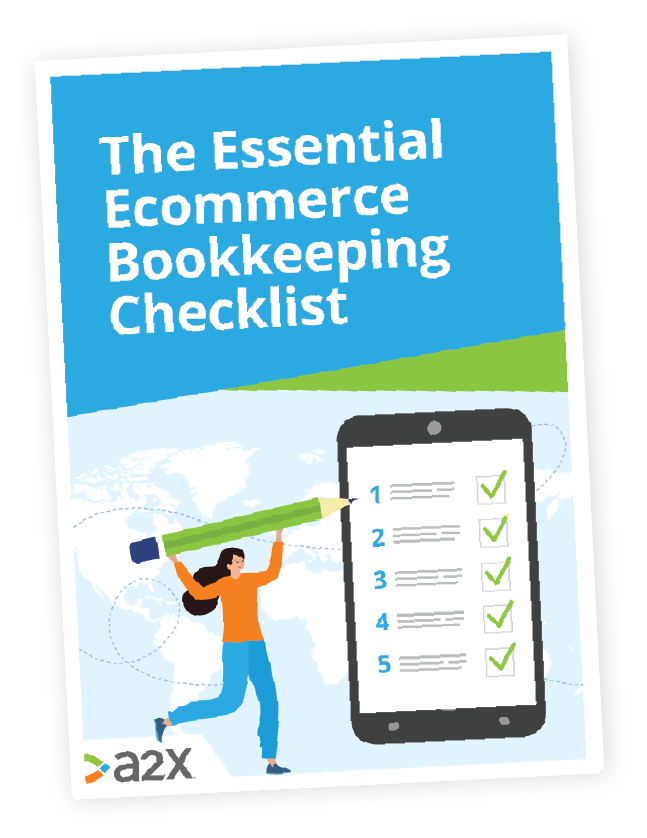
Selling on Amazon? Here's How to Spend Less Time on Accounting, and More on Your Business
If you’re an Amazon marketplace merchant, you’ll know that selling through the platform isn’t all smooth sailing. In fact, when it comes to balancing your books, there are some serious headaches to deal with.
Sales data from Seller Central is delivered in an overly complicated format, which doesn’t mesh easily with most accounting systems. This means reconciling sales numbers with the actual amounts that land in your bank account can seem nearly impossible, and cost you hours or days every month.
Amazon retailer Nick Losciuto explains:
“As we grew, it became much harder to do manual accounting. You end up needing a large staff just to do accounting! There wasn’t a lot of experience amongst accountants or CPAs, and Amazon was also reluctant to provide us with much info on how to organize and to get everything accounted for.”
Read more about Nick’s experience using A2X for Amazon here.
Fortunately, there are ways around these issues.
Automating manual processes with appropriate accounting software, seeking support from experts, and changing your work habits can all help you claim back some of your valuable time.
Our Top 5 Tips for Amazon Sellers to Save Time on Accounting
1: Get in the habit
Accounts aren’t necessarily fun, but they are essential for a successful business.
Get into the habit of devoting a small period of time, say 10-20 minutes, to your accounts every day or so. This will help you get details logged while they are fresh in your mind, rather than having to go back and check at a later date.
Because online retail is so fast-paced and competitive, staying on top of these details is particularly important.
Doing it incrementally also helps you avoid spending an entire weekend getting your accounts organized later on.
2: Move to the cloud
Cloud-based accounting systems such as Xero and QuickBooks Online give you instant access to your accounting data from anywhere.
You can also set up automatic bank feeds to simplify reconciliation, rather than manually entering information and checking numbers across multiple platforms.
3: Get your papers in order
Using a document aggregator ( Hubdoc is one example) is invaluable if you’re selling on Amazon.
An aggregator collects all the information you need for your accounts – bank statements, bills, invoices, receipts – in one place. It then breaks down the information, OCRs it, and can push it into your cloud accounting system so it’s ready for you or your accountant.
4: Outsource your accounting
Doing your own accounting can be fine when you start out, but it gets harder and harder as you grow.
Outsourcing your accounting to a specialist means avoiding costly mistakes, and saving time that could be better spent elsewhere.
Choose an accountant who specialises in online retail. A good ecommerce accountant will have a finger on the pulse of new accounting software, and will be able to help you find the latest time-saving tools.
One example: ecommerce accountants Catching Clouds discovered A2X to automate their Amazon accounting a while back, and now it’s become an essential tool for all their Amazon seller clients.
Find an accountant across the globe from our directory of trusted A2X partners here.
5: Get accurate with A2X
Reconciling Amazon data is a time-consuming process.
Amazon Seller Central supplies sellers a vast amount of transaction data, and not in the easiest of data formats, which can mean you spend hours or days trying to make sense of it all.
A2X solves this problem by automatically sorting and aggregating your Amazon transaction data and slotting it into cloud accounting systems. You end up with accurate, reconciled financial records every month, without wasting your time.
Nick Losciuto adopted A2X and Xero before selling his Amazon business, and found the software enormously valuable:
“It was a relief. A2X was much, much easier than the other systems we were trying to use, so I was pretty surprised! It all worked seamlessly.”
Try A2X for Amazon today for free!
Simple steps, huge results
Getting into good accounting habits, seeking support from a specialist accountant, and using software designed for ecommerce retailers can all help you save time.
And once you’re saving the time previously spent on repetitive, often frustrating accounting processes, you have time to spend on serving your customers, refining your product offering, and growing your business.
Also on the blog:
Want to feel completely confident in your ecommerce bookkeeping?
Businesses that document their processes grow faster and make more profit. Download our free checklist to get all of the essential ecommerce bookkeeping processes you need every week, month, quarter, and year.
Download it here

